-
2023-2024

Imagining Polarized Publics (and Our Role With Them)
Speaker: A. Jackson Harris, Ph.D.
Director of the Civic Learning Lab at The University of Alabama's Crossroads Civic Engagement Center
Keynote Address
What does it mean for an entire public to be polarized? Are we able to imagine the problem? Are we able to envision our place within it? In this keynote address, Dr. A. Jackson Harris (University of Alabama) explores these urgent questions and introduces an emergent theory of structurally dynamic public spheres. By imagining how publics transform with greater and lesser degrees of polarization, students and educators alike are able to visualize the relational effects of toxic polarization and, more importantly, understand the need for civic skills, dialogue, and cross-cutting relationships.
Workshop: Fostering a Civic Development Ecology on Campus and Beyond
There is a recognized mission in higher education to develop graduates who are inspired and equipped to contribute to a thriving democratic society. Our tendency, however, is to view student civic development as a linear process, and one which occurs only in the classroom or in the traditional co-curricular world of student programming. This mindset risks excluding nontraditional students, at a minimum, and limiting the potential civic learning of all. Drawing on the theories of Campus Ecology (Banning & Kaiser, 1974) and Developmental Ecology (Bronfenbrenner, 1979, 2005), this workshop explores an ecological model for student civic development. This ecological perspective underscores the importance of being more intentional about the ways we work together to prepare students for civic leadership in their communities and democracy. Likewise, it encourages educators and administrators to tap into the near-infinite opportunities for implementing the co-creative strategies necessary to the development of civic values, knowledge, skills, and actions in today’s student populations.
Dr. A. Jackson Harris is a writer, speaker, and public educator. Jackson serves as Director of the Civic Learning Lab at The University of Alabama's Crossroads Civic Engagement Center. His primary responsibilities in this role include the implementation of democratic learning programs, curriculum development and delivery, and consultation on dialogue-based courses and programming. To his work, he brings over a decade of workshop facilitation experience and leadership training.
Jackson's professional background includes leading roles in national non-profit organizations: Southern Region Vice President of the National FFA Organization and Regional Director of the National Wild Turkey Federation. He holds a Bachelor of Arts degree in Community Development, a Master of Arts degree in Communication Studies with a focus in Rhetoric and Political Discourse, and a Doctor of Philosophy in Communication and Information Sciences. His scholarship has been focused on the polarization of public spheres and educating for democracy.

College Belonging for Students
Speaker: Lisa Nunn
Director of the Center for Educational Excellence, Professor of Sociology, University of San Diego
Keynote Address
What are colleges getting wrong about fostering a sense of belonging for students? How do students' many identities shape their experiences, their particular hurdles and challenges around belonging? Belonging is more than making friends and joining orgs. Understanding how belonging happens in the classroom (academic belonging) and how it happens in the campus culture (campus-community belonging) allows us to recognize the important role we play in offering belonging to our students rather than expecting them to go and find it for themselves. Join us to learn more about how the dynamics of belonging work and everyday strategies we can employ to build a stronger academic community for our students and ourselves.
Fostering Academic Belonging: Practical Strategies for Faculty
What are the signs that students feel that they belong academically in college? They describe it as feeling competent; confident enough to raise their hand in class or talk to their professors one-on-one; and comfortable enough to study with peers. What can faculty do to foster academic belonging in our students? Come and find out! By making small shifts in our everyday interactions with students we can make a big difference in their college success.
Lisa Nunn is the director of the Center for Educational Excellence and a professor of sociology at the University of San Diego. Nunn cares deeply about sense of belonging in the USD campus community. First-generation college students and first-year students are at the center of her interest in belonging, and faculty’s sense of belonging is at the center of the work she does in her role as director of the Center for Educational Excellence.
Nunn’s scholarship centers on students’ experiences, students’ identities, and students’ overall success and wellbeing. Her most recent book, College Belonging, follows first-year college students for two years to see how they navigate their new campus homes and what kinds of obstacles they face to developing a sense of belonging there. As a sociologist, she looks closely at communities and how they function. As a cultural sociologist and an organizations scholar, Nunn approaches research questions about student belonging by looking at what each university is doing with its policies, offerings and structures that foster a particular campus culture at each school. She also systematically interviews students to see what campus feels like to them, from their eyes, walking in their shoes. In doing so, she has been able to outline ways that small changes in teaching and in everyday interactions with students can make a big difference in their lives.
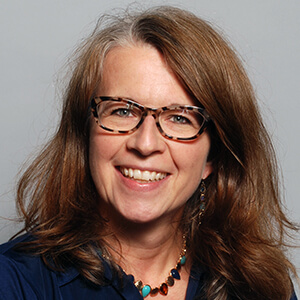
The Current State of Student Engagement: What Educators Can Do to Promote Positive Learning Outcomes for All Students
Speaker: Jillian Kinzie
The need to enhance student engagement in educational practices that matter for learning is a critical priority for increasing student success. Even more, colleges and universities must ensure practices and programs support students’ equitable progress towards achieving a high-quality 21st-century degree. This keynote will provide an overview of the state of student engagement in today’s learning quality and equity paradigm, focus on activities positively associated with student persistence, essential learning outcomes and workplace outcomes, feature Weber State’s recent results from the National Survey of Student Engagement (NSSE) to contextualize discussion, and highlight what campus leaders and educators can do to enhance the conditions for student learning and success.
Workshop: Incorporating High Impact Educational Experiences (HIEE) Inside and Outside the Classroom
Students get more deeply engaged in their education when they have hands-on opportunity for learning. When done well, participating in a high-impact practice (HIP), or in Weber State’s terminology, an HIEE, should provide students a developmentally powerful experience, replete with opportunities to apply, reflect and integrate what one is learning. While research shows participation in HIPs benefits all students, especially those from historically underrepresented groups, not all students participate. Even more, HIPs can vary in quality and may lack the curricular integration that facilitates a collective impact on student learning and success. This workshop will offer additional evidence about what makes HIPs effective and feature strategies for ensuring more students can take part. Participants will consider Weber’s HIEE “impact strategies” and taxonomy, and other lessons learned, and apply principles of assignment design, including clarity of purpose, task and criteria, to expand the delivery and enhance the effectiveness of high impact practices.

Mary-Ann Winkelmes' Workshops
Part 1: Transparency and Its Impact on Learning
Transparent teaching/learning practices make learning processes explicit while offering opportunities to foster students' metacognition, confidence, and sense of belonging in college in order to promote student success equitably. A 2016 AAC&U study (Winkelmes et al.) identifies transparent assignment design as a replicable teaching intervention that significantly enhances students' success, with greater gains by historically underserved students. This session reviews the study’s findings and foundational research, and it examines some sample assignments. Dr. Winkelmes invites participants to respond to this 2-question survey about student's learning by August 8.
Part 2: A Workshop for Designing Transparent Assignments
In this session, Dr. Winkelmes will walk participants through the process of designing/revising assignments (in small work groups) to make them more transparent, relevant, and accessible for students. Participants will leave with a draft assignment or activity for one of their courses or co-curricular educational experiences and a concise set of strategies for designing transparent assignments that promote students’ learning equitably. It is not necessary to bring an existing assignment to this session. It is helpful but not necessary to attend the prior session.
Joining a TILT SoTL Project: An informal Conversation
Dr. Winkelmes and Colleen Packer invite interested participants to consider a transparency-focused scholarship of teaching and learning (SoTL) project that explores the impact of transparent instruction on Weber State students and faculty. Participants will discuss how to use TILT Higher Ed surveys, and how their own reflections might contribute to a publishable study.
The Unwritten Rules of College: How Transparent Instruction Supports Student Success Equitably
Transparent teaching/learning practices make learning processes explicit while offering opportunities to foster students' metacognition, confidence, and sense of belonging in college in order to promote student success equitably. A 2016 AAC&U study (Winkelmes et al.) identifies transparent assignment design as a replicable teaching intervention that significantly enhances students' success, with greater gains by historically underserved students. This session 1) reviews the study’s findings and foundational research, 2) examines some sample assignments, 3) walks participants through the process of designing/revising assignments (in small work groups) to make them more transparent, relevant, and accessible for students. Participants will leave with a draft assignment or activity for one of their courses or co-curricular educational experiences and a concise set of strategies for designing transparent assignments that promote students’ learning equitably. It is not necessary to bring an existing assignment to this session.
-
2018-2019
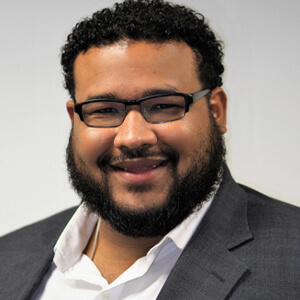
Taking Ownership of Your Learning and Making it Your Job is the First Step in College Success
Speaker:
Workshop — Becoming an Interruption: The Journey from a Path of Destruction to a Path of Success
Student Motivation: Cultivating Positive Learning Environments Part 1
Motivation matters; it is a precursor to student engagement. Frequently, educators lament about “how to motivate students to care about their thinking.” While the literature is overrun with deficit thinking about students, their families, culture, socioeconomic background, and communities, this professional learning module provides a foundation for educators to reflect about how deficit thinking often permeates how we think about students and offers alternative practices in order to create positive learning environments. Grounded in culturally responsive pedagogy, this module assists participants to develop a deeper understanding of the relationship culture and the motivation to learn through diverse counterbeliefs and values that students and educators bring to a learning environment. Part 1 shares Ginsberg’s and Wlodkowski’s Framework for Student Motivation which includes: 1) establishing inclusion; 2) developing attitude; 3) enhancing meaning and 4.) engendering competence. Part one also offers tools for educators in how to facilitate discussions.
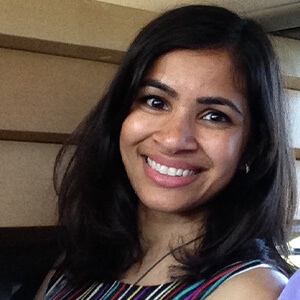
Beyond Financial Aid: How Addressing Students' Basic Needs Can Support Student Success
Speaker: Priyadarshini Chaplot
An increasing number of students are juggling work, family, and education as they try to secure a career path with a living wage for themselves and their families. Add to the mix that tuition rates are rising faster than student aid can keep up and the reality is that larger numbers of students are experiencing larger amounts of unmet financial need. This need includes reliable and adequate access to nutrition, housing, childcare, transportation, and health care. To attend to these realities, many students balance decisions (e.g., work more, take fewer courses, borrow more, stop out, drop out) that can threaten their academic progress and success. Institutions that have intentionally and structurally mitigated these concerns have seen more students staying and completing their educational goals.
The keynote session will (1) provide a clear framework of four research-based strategies to strengthen students' financial stability and (2) share promising institutional examples from around the country.
Workshop: Beyond Financial Aid Self-Assessment
In this workshop, you will have a hands-on opportunity to roll up your sleeves and engage with a self-assessment tool that can help you clarify student needs, take stock of and organize your existing efforts, and identify opportunities to redesign practices and policies that can more holistically support Weber State students to success.

The Current State of Student Engagement: What Educators Can Do to Promote Positive Learning Outcomes for All Students
Speaker: Jillian Kinzie
The need to enhance student engagement in educational practices that matter for learning is a critical priority for increasing student success. Even more, colleges and universities must ensure practices and programs support students’ equitable progress towards achieving a high-quality 21st-century degree. This keynote will provide an overview of the state of student engagement in today’s learning quality and equity paradigm, focus on activities positively associated with student persistence, essential learning outcomes and workplace outcomes, feature Weber State’s recent results from the National Survey of Student Engagement (NSSE) to contextualize discussion, and highlight what campus leaders and educators can do to enhance the conditions for student learning and success.
Workshop: Incorporating High Impact Educational Experiences (HIEE) Inside and Outside the Classroom
Students get more deeply engaged in their education when they have hands-on opportunity for learning. When done well, participating in a high-impact practice (HIP), or in Weber State’s terminology, an HIEE, should provide students a developmentally powerful experience, replete with opportunities to apply, reflect and integrate what one is learning. While research shows participation in HIPs benefits all students, especially those from historically underrepresented groups, not all students participate. Even more, HIPs can vary in quality and may lack the curricular integration that facilitates a collective impact on student learning and success. This workshop will offer additional evidence about what makes HIPs effective and feature strategies for ensuring more students can take part. Participants will consider Weber’s HIEE “impact strategies” and taxonomy, and other lessons learned, and apply principles of assignment design, including clarity of purpose, task and criteria, to expand the delivery and enhance the effectiveness of high impact practices.

Mary-Ann Winkelmes' Workshops
Part 1: Transparency and Its Impact on Learning
Transparent teaching/learning practices make learning processes explicit while offering opportunities to foster students' metacognition, confidence, and sense of belonging in college in order to promote student success equitably. A 2016 AAC&U study (Winkelmes et al.) identifies transparent assignment design as a replicable teaching intervention that significantly enhances students' success, with greater gains by historically underserved students. This session reviews the study’s findings and foundational research, and it examines some sample assignments. Dr. Winkelmes invites participants to respond to this 2-question survey about student's learning by August 8.
Part 2: A Workshop for Designing Transparent Assignments
In this session, Dr. Winkelmes will walk participants through the process of designing/revising assignments (in small work groups) to make them more transparent, relevant, and accessible for students. Participants will leave with a draft assignment or activity for one of their courses or co-curricular educational experiences and a concise set of strategies for designing transparent assignments that promote students’ learning equitably. It is not necessary to bring an existing assignment to this session. It is helpful but not necessary to attend the prior session.
Joining a TILT SoTL Project: An informal Conversation
Dr. Winkelmes and Colleen Packer invite interested participants to consider a transparency-focused scholarship of teaching and learning (SoTL) project that explores the impact of transparent instruction on Weber State students and faculty. Participants will discuss how to use TILT Higher Ed surveys, and how their own reflections might contribute to a publishable study.
The Unwritten Rules of College: How Transparent Instruction Supports Student Success Equitably
Transparent teaching/learning practices make learning processes explicit while offering opportunities to foster students' metacognition, confidence, and sense of belonging in college in order to promote student success equitably. A 2016 AAC&U study (Winkelmes et al.) identifies transparent assignment design as a replicable teaching intervention that significantly enhances students' success, with greater gains by historically underserved students. This session 1) reviews the study’s findings and foundational research, 2) examines some sample assignments, 3) walks participants through the process of designing/revising assignments (in small work groups) to make them more transparent, relevant, and accessible for students. Participants will leave with a draft assignment or activity for one of their courses or co-curricular educational experiences and a concise set of strategies for designing transparent assignments that promote students’ learning equitably. It is not necessary to bring an existing assignment to this session.
-
2017-2018

You See Me: Cultivating Inclusion to Foster Student Motivation
Speaker: Yvonne Ortiz
A precursor to student engagement, motivation matters. Frequently, educators lament about “how to motivate students to care about their learning.” While the literature is overrun with deficit thinking about students, their families, culture, socioeconomic background, and communities, we will learn a framework for educators to reflect about how deficit thinking often permeates how we think about students and identify alternative practices to create positive learning environments.
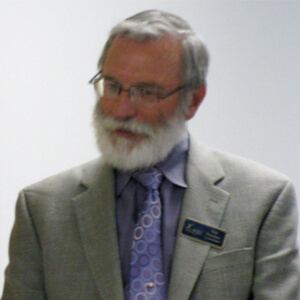
Building Community and Student Rapport through High Engagement Strategies
Speaker: Jim Donohue
Since 2007, Jim Donohue has consulted at colleges and universities around the United States concentrating on student engagement and success initiatives. His passion for education stems from his belief that education is one of the only ways to change personal history. The large number of students whose dreams are deferred or lost all together when they find themselves unable to negotiate the transition to college and university campuses saddens him. He believes that by working collaboratively with students, campus educators and leadership it will be possible to enrich the lives of students and educators alike.
Workshop: High Engagement and Inquiry Strategies in Math
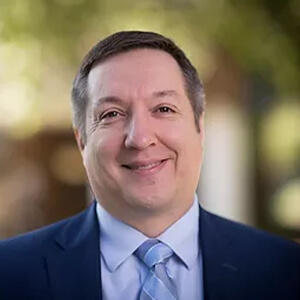
Teach Like a Puma
Speaker: Todd Zakrajsek
Todd is a faculty developer and college associate professor just trying to get students more interested in learning. His presentation, "Teach Like a Puma," focuses on the faculty's role in promoting student success in the classroom.
Past Speakers
You can access the videos of previous keynote speeches and workshops by enrolling in the Promoting Student Success Canvas course.
- Go to https://weber.instructure.com/enroll/FKHWRY
- Log in using your Wildcat username and password (if needed).
- Click the "Enroll in Course" button located on the right side of the screen.
Please peruse the materials and feel free to contribute to the dialogue about what we can do to promote student success more or better than we already do at WSU.
